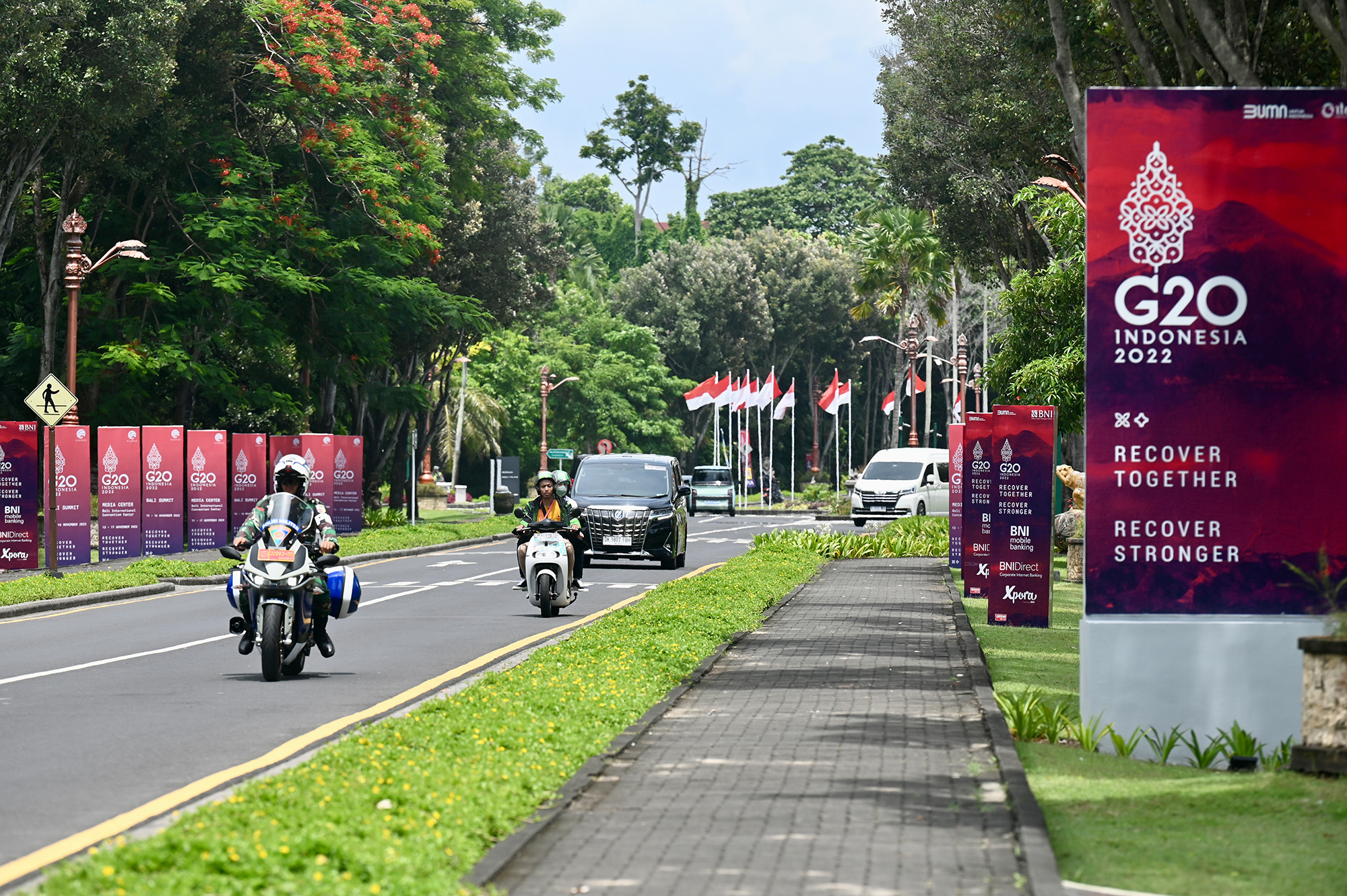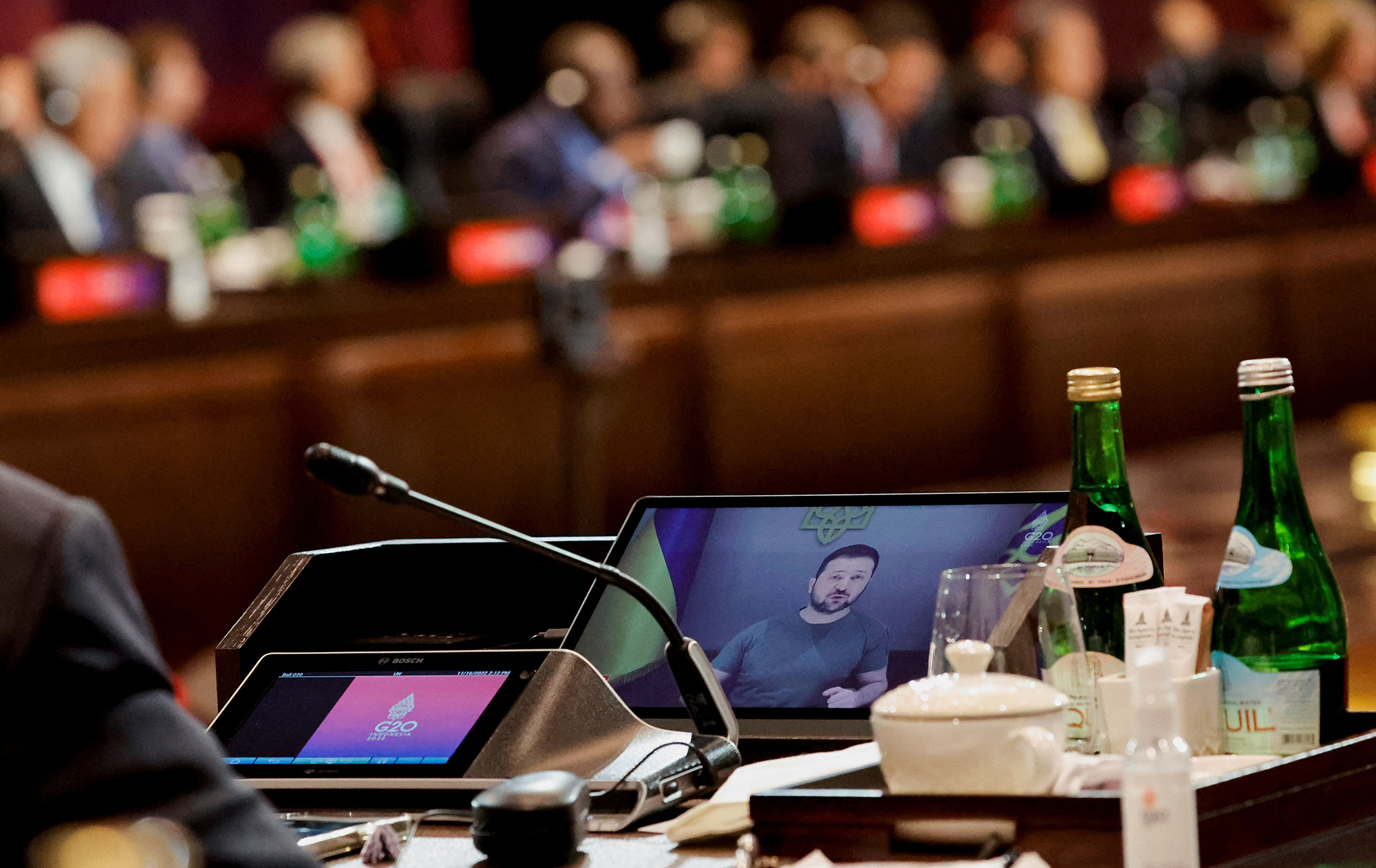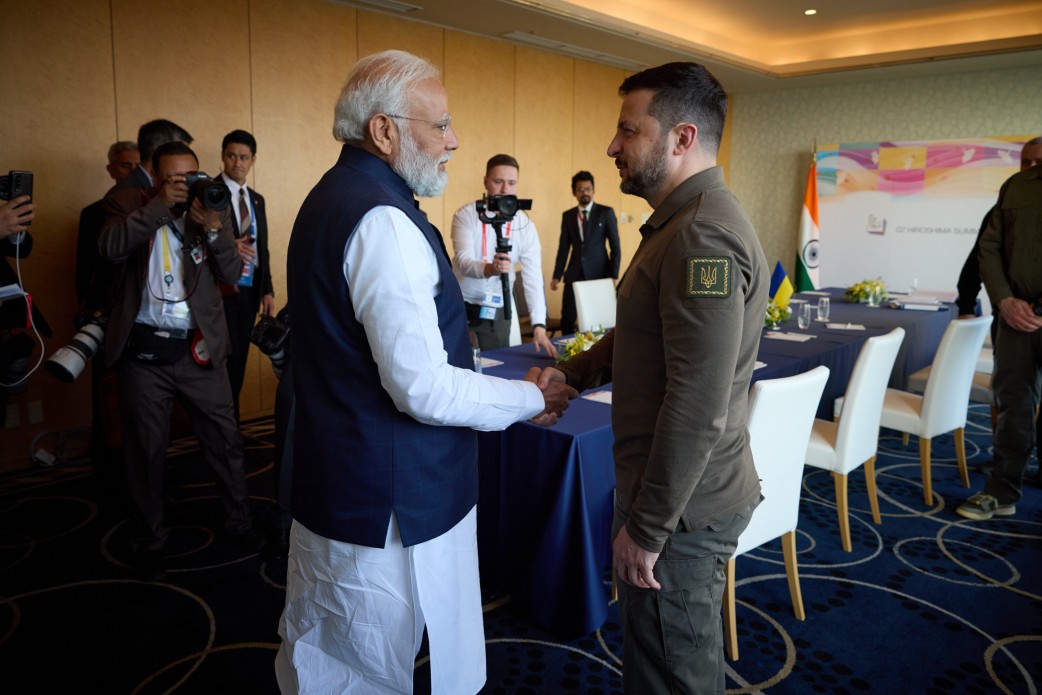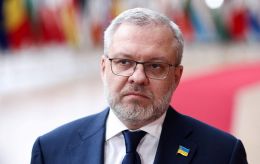With Africa, without Ukraine: What to expect from the G20 summit in India and will the war be addressed
 India will host the G20 summit, but without Ukraine (GettyImages)
India will host the G20 summit, but without Ukraine (GettyImages)
India and South Asia will host their first summit of the world's twenty largest economies, the G20. The meeting is aimed at discussing several important topics, but without Ukraine's participation. Why this happened, what does the African Union joining the summit mean, and whether the war will be addresses there - read below in RBC-Ukraine's article.
What is G20 and how did the summit in Bali go?
The "Group of 20" is an intergovernmental organization established in 1999 as a response to the economic crisis. It consists of the 19 largest economies of the world and the European Union. Starting in 2024, the African Union will also become a member. In total, G20 members represent up to 80% of world trade and two-thirds of the world's population. But they also account for 66% of the world's poor.
Currently, the G20 includes Argentina, Australia, Brazil, Canada, China, France, Germany, India, Indonesia, Italy, Japan, Mexico, South Korea, South Africa, Russia, Saudi Arabia, South Africa, Turkey, the United States, and the United Kingdom. The meetings are also attended by representatives of the IMF, the European Central Bank, and the World Bank.

Photo: The last G20 summit was held on the island of Bali in Indonesia (Getty Images)
"The name 'G7' or 'G20' is a projection of Russia's narrative. Everywhere it joins, it tries to make everything big for itself. It's an interesting format, but it has no binding decisions or agreed directions that go beyond general humanitarian topics like climate or development," Hennadii Maksak, executive director of the Foreign Policy Council "Ukrainian Prism," told RBC-Ukraine.
The last meeting took place on the island of Bali in Indonesia in November 2022. President Joko Widodo invited Volodymyr Zelenskyy to participate in the summit, but he had to decline due to the situation in the country. Last year's summit also discussed the war in Ukraine. However, the final declaration did not openly condemn Russia, although this was the case in some of the speeches of world leaders.

Photo: Volodymyr Zelenskyy speaks at the G20 meeting in Bali in 2022 (Getty Images)
Volodymyr Zelenskyy took part in the meeting online. He said that the time has come when "the Russian military machine must be stopped to save thousands of lives." He also presented a peace formula at the event:
- nuclear, food and energy security;
- release of all captured Ukrainian citizens under the "all for all" formula;
- restoration of Ukraine's territorial integrity;
- withdrawal of Russian troops and cessation of hostilities;
- restoration of justice;
- countering ecocide;
- preventing escalation, fixing the end of the war on the basis of the UN Charter.
Zelenskyy also called on the conference participants to prevent new Russian aggression in the future and to promote the continuation of the grain deal, which, according to him, should have been extended indefinitely, regardless of the outcome of the war. "The right to food is a fundamental right of every human being," Zelenskyy said at the time.
Preparations for the New Delhi summit: No focus on war and Ukraine
Although the G20 rules provide for the rotation of continents and host countries (in 2024, it will be held in Rio de Janeiro), this time the G20 will meet in Asia again, in India. A country that has a much more restrained attitude to the war in Ukraine than Indonesia.
New Delhi clearly emphasized this back in February 2023, on the first anniversary of the full-scale war in Ukraine, when during a technical meeting with bank governors, the focus was on "the most vulnerable citizens," and Russia's invasion was not mentioned at all. This stance is primarily related to India's purchase of cheap Russian oil, not to mention the "historical" projects of Indians first with the USSR and then with Russia.

Photo: India-Ukraine relations are developing very slowly (Website of the President of Ukraine)
Indian Prime Minister Narendra Modi referred to the situation as "an escalation of geopolitical tensions around the world." However, discussions both on the panels and "on the sidelines" consistently revolved around Ukraine. At least members of the "Big Seven" emphasized new sanctions, condemnation of Russia, and financial support for Kyiv. Meanwhile, the G-20 remains deeply divided over the war in Ukraine and has not been able to produce a consensus document agreed upon by all parties.
During the summit scheduled for September 9-10, India plans to address loans to developing countries, international debt system reforms, cryptocurrency regulation, and the impact of geopolitics on food and energy security. The main theme is "One Earth. One Family. One Future." Notably, Ukraine is not among the invited countries this year.
According to RBC-Ukraine, India did not even want Ukraine to participate via video link because it feared that Kyiv might completely overshadow the summit. The hosts of the summit, however, wish to discuss other topics unrelated to the Russian-Ukrainian war. Nevertheless, the Ukrainian side continues to make efforts to ensure President Zelenskyy's participation, even if it's through a video call.
"Our international partnership also includes delegation. Partners have the right to express their opinions on Ukraine, so it's not always necessary to be present in person. I believe it's time to reconsider our rhythm of personal presence. It may have already become somewhat redundant. However, in the current G20 format, our absence is not a problem," said Hennadii Maksak. "Friends and partners of Ukraine around the world will make efforts to shape the summit's agenda without our country's participation," emphasized the analyst.
Indian Foreign Minister Subrahmanyam Jaishankar explained the decision not to invite Ukraine by stating that the G20 supposedly deals with international development and economic growth rather than "conflict resolution." According to him, this should be addressed within the framework of the UN Security Council, whose decisions are known to be blocked by Russia.
The summit in New Delhi will not include the presidents of China and Russia, Xi Jinping and Vladimir Putin, respectively. While an international arrest warrant has been issued for the latter, and the Kremlin dictator rarely leaves the country, the situation is different for the Chinese leader. Relations between China and India, which have deteriorated in recent years, make this visit highly unlikely.
India and Russia: A partnership since the Cold War undergoes changes
India has attempted to maintain a delicate balance between China, the United States, and Russia even before the G20 summit. India's partnership with Russia dates back to the Cold War era. During the 1965 war between India and Pakistan, the Soviet Union provided New Delhi with military support, thereby posing a threat to the United States, as reported by Al-Jazeera.
Since then, India has relied on Russia for military modernization and diplomatic cover at the UN Security Council. In return, India was the only South Asian nation to support the Soviet invasion of Afghanistan in 1979. Russia, in turn, opposed international sanctions against India after its nuclear tests in 1998.
.jpg)
Photo: India has not yet openly condemned Russia's aggression against Ukraine and continues to cooperate with the Kremlin (Wikimedia Commons)
Now, India is one of the few developed economies in the world that refrains from openly criticizing Russia's aggression against Ukraine. It is also the third-largest buyer of Russian oil. By doing so, India challenges the EU's attempts to limit Vladimir Putin's oil revenues. In 2022, India imported more than $36.7 billion worth of "black gold." However, this share decreased in July-August 2023 as the initial discount significantly reduced (though India still buys a lot of oil from Russia).
Additionally, New Delhi has reduced its defense purchases from Russia by 65%, redirecting its procurement towards France, the United States, and Israel. This is crucial because 70% of Indian aircraft, 44% of ships and submarines, and 90% of Indian armored vehicles come from Russia. This shift occurred because Indians saw the true "quality" of Russian weaponry in the war in Ukraine and realized that their stocks would continue to be disposed of. Ultimately, India may find itself without essential components, as Russia may not have them either. Therefore, it is time to seek other, more reliable suppliers.
At the same time, India has taken cautious steps to improve its relations with Ukraine, as Narendra Modi met with Zelenskyy "on the sidelines" of the G7 summit in Japan that year.
Currently, in India, there is a growing belief that the "ability of Russia to be a partner has significantly diminished," and this country is "India's past." Moscow's closer ties with Beijing, which New Delhi sees as a strategic threat, have influenced this position. The weapons Russia sells to India, Moscow also sells to China. This poses a direct threat to the security of the Indian and Pacific Ocean regions and requires closer cooperation with the United States, Japan, and Australia.
"For India, the G20 is not a unique platform because there was recently a BRICS summit where there were more opportunities to discuss everything in closed-door settings. The Group of Twenty is primarily a ceremonial event for India," believes Hennadii Maksak.
African newcomers: New opportunities for the forgotten continent
Another interesting aspect of the new G20 summit is the invitation of another intergovernmental organization, the African Union, to official membership. It will have the same rights within the summit as the EU. This policy aims to amplify the voices of 55 African countries on the global stage.
"For Africa, this step is an opportunity to play a greater role in addressing more global issues, as the continent has been marginalized in this regard for many years," explained Africanist Marta Oliynyk-Diomochko in a comment to RBC-Ukraine.
.jpg)
Photo: The African Union is to be invited to be a part of the G20 (Wikimedia Commons)
Italian Prime Minister Giorgia Meloni and German Chancellor Olaf Scholz advocated for Africa's full membership in the G20. The latter stated that Africa should play a larger international role than it currently does.
"There are many issues within the G20 that are important for Africa: global tax reform, and other methods to combat illicit financial flows, debt, climate change, and more," emphasized Marta Oliynyk-Diomochko.
The question, according to the expert, is whether the African Union can use this expansion of the G20 to the benefit of all African countries. Will there be government unity in Africa regarding issues raised within the G20 (especially those without a unified position)? Can the African Union advocate for sensitive issues that are needed for African countries?
As Project Syndicate notes, Africa will need to quickly integrate into the G20's financial track, responsible for improving African economies (especially the debt cancellation initiative DSSI).
The current economic situation is quite dire. Africa requires $1.3 trillion annually for sustainable development needs until 2030, but it has received only 3% ($18.3 billion annually) of global climate finance from 2016 to 2019, despite being responsible for only 3% of global greenhouse gas emissions. By 2030, the continent will need $2.7 trillion to achieve the goals of the Paris Climate Agreement. Joining the G20 potentially could help secure more funds to combat climate change, which poses significant risks to Africa.
A detailed plan and a unified voice that can be presented to partners are essential, as emphasized by the publication. Building coalitions within the G20 is necessary now to make the most out of membership.
"There are also considerations regarding the representation of the African Union, particularly at the level of financial ministers and banks (FMCBG), as not all financial institutions within the AU are operational. Additionally, the AU presidency changes annually, which could affect the stability of positions on various issues," says Marta Oliynyk-Diomochko.

